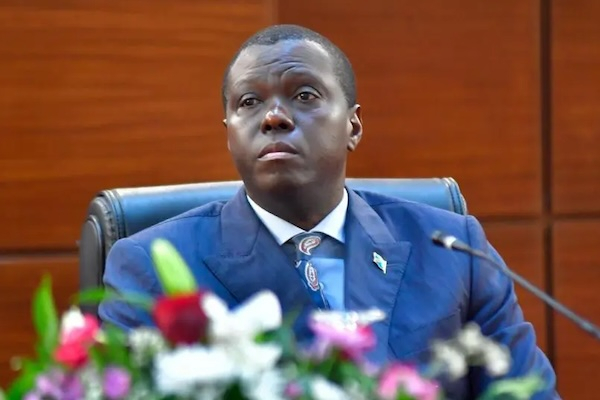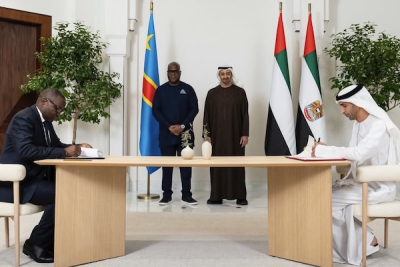- New central bank governor André Wameso pledges to rehabilitate the Congolese franc.
- Strategy rests on stabilizing inflation, boosting demand for CF, and expanding its use in payments.
- Risks include weak reserves, fiscal slippage, and persistence of parallel markets.
The new governor of the Central Bank of Congo (BCC), André Wameso, has vowed to restore confidence in the Congolese franc (CF) and reduce the country’s heavy reliance on the U.S. dollar, a challenge that has frustrated policymakers for more than a decade.
“We have to make sure the population trusts its currency again, because I don’t think we can build a new Congo with a currency other than the national currency,” Wameso told Bloomberg in an interview.
Despite a program launched in 2012 to promote use of the CF, dollarization remains pervasive. This initiative "has had only a marginal impact, and dollarization remains very high", notes the World Bank in a report published last July. The IMF estimates that more than 90% of loans and deposits are still denominated in foreign currencies, mainly dollars, leaving the BCC with limited room to conduct monetary policy.
Three-pillar plan
Wameso’s roadmap is anchored on three priorities: stabilizing the currency by tightening policy and intervening occasionally on the forex market until inflation holds near 7%; creating structural demand for CF through higher-yielding domestic bonds and expanded credit, particularly for housing; and facilitating its use in everyday transactions by making digital and retail payments in local currency the norm.
First moves
Since taking office, Wameso has injected $50 million into the interbank market at CF2,776 per dollar, echoing a strategy adopted earlier this year with IMF support. The BCC has kept its key interest rate at 25% since August 2023 to rein in inflation, which stood at 8.5% in July, year-on-year.
He also inherits pending reforms, including a June 2024 directive obliging all electronic payment terminals to accept only CF. The rule, effective since July 2024, has yet to be widely enforced.
To achieve his objective, President Tshisekedi's former economic advisor must also ensure that the measures decided before his arrival are implemented. In June 2024, for example, the BCC ordered the reconfiguration of all electronic payment terminals to accept only Congolese francs. However, this obligation, which came into force at the end of July 2024, has still not been complied with.
Generally speaking, the success of this gamble depends on a number of conditions. Anti-inflation credibility must be maintained so that positive real interest rates encourage households and businesses to save in domestic currency. The local financial market will also need to expand, with liquid instruments and an active secondary market to underpin confidence. Strict budgetary discipline is also essential: if the Treasury were to force the BCC to finance the deficit, the monetary peg would immediately be called into question. Finally, the transparent operation of the foreign exchange market will be essential to avoid adjustments being channelled through the parallel market.
Conditions and risks
Analysts say success hinges on credibility. The central bank must sustain positive real interest rates, deepen local debt markets, and maintain strict fiscal discipline to avoid pressure from the Treasury to finance deficits. Transparency on the forex market is also key to preventing capital flight to the parallel market.
Risks remain high. A hasty transition could fuel informal currency trade, dollar sales without matching inflows could sap reserves—currently covering barely three months of imports—and rapid portfolio shifts could trigger defaults.
Observers point to three indicators that will signal progress: the spread between official and parallel exchange rates, appetite for CF-denominated assets, and uptake of the currency in digital payments.
By putting de-dollarization at the heart of his mandate and stressing it in early international outreach, Wameso has set an ambitious tone. The mission is fraught with obstacles, but his message is clear: stabilize, add value to, and expand use of the Congolese franc as a step toward monetary sovereignty.
Georges Auréole Bamba










